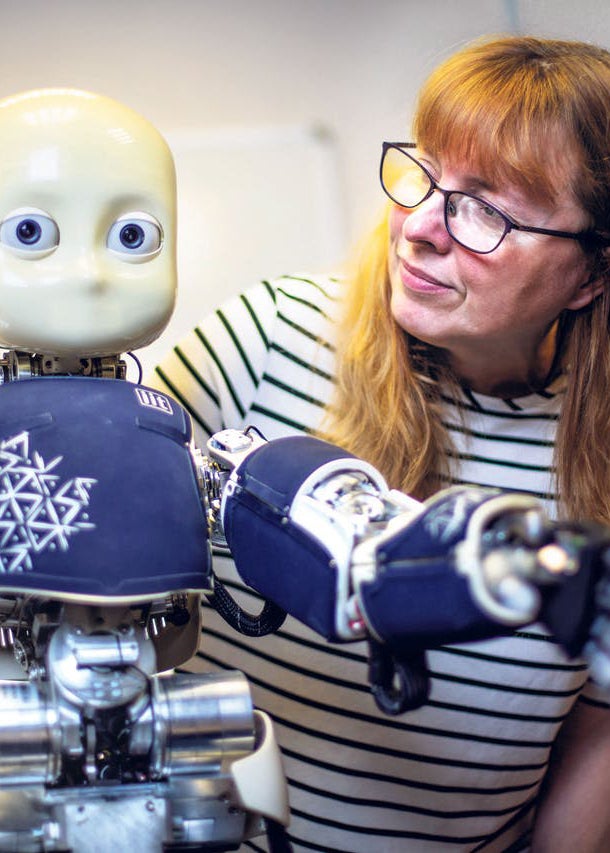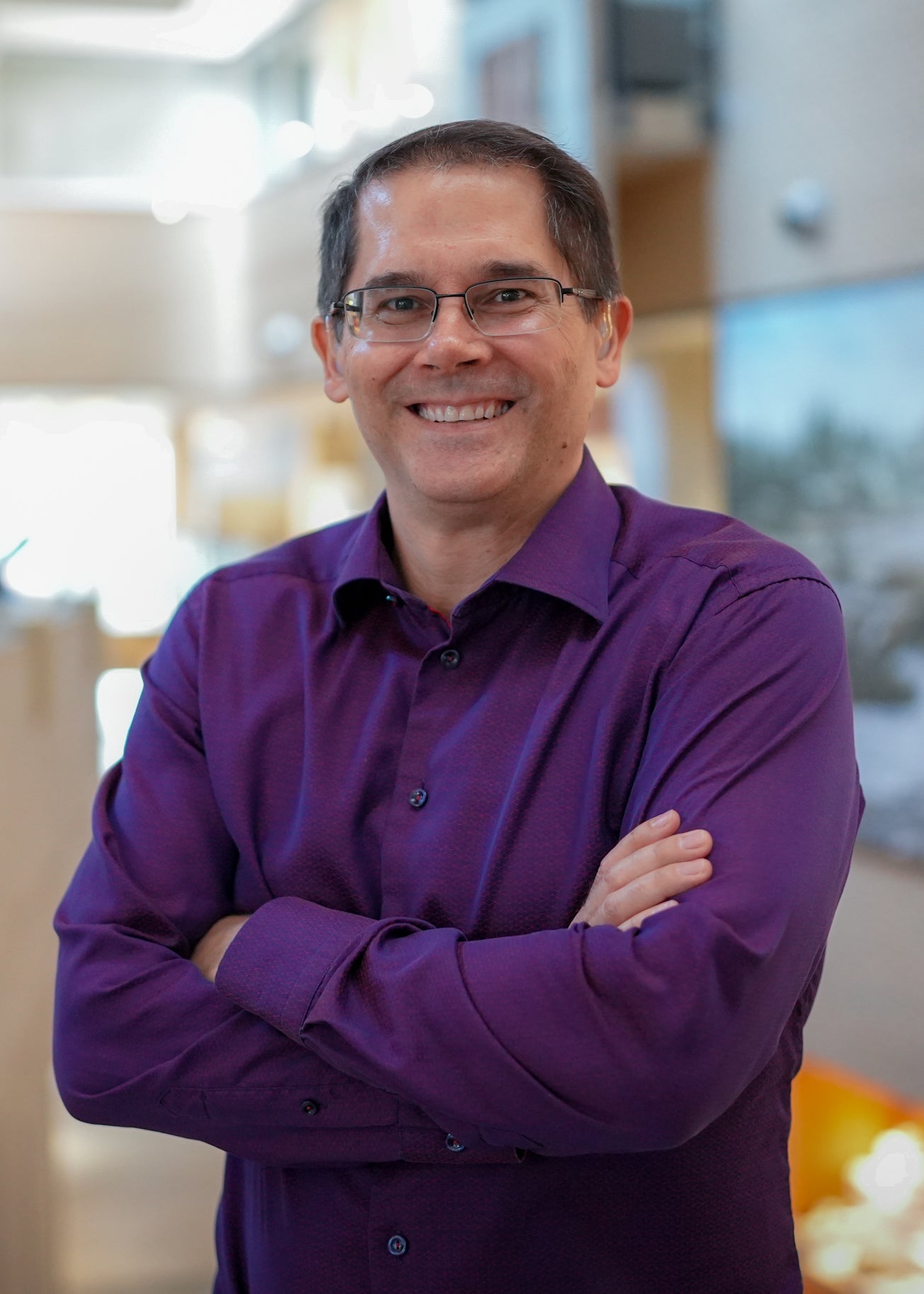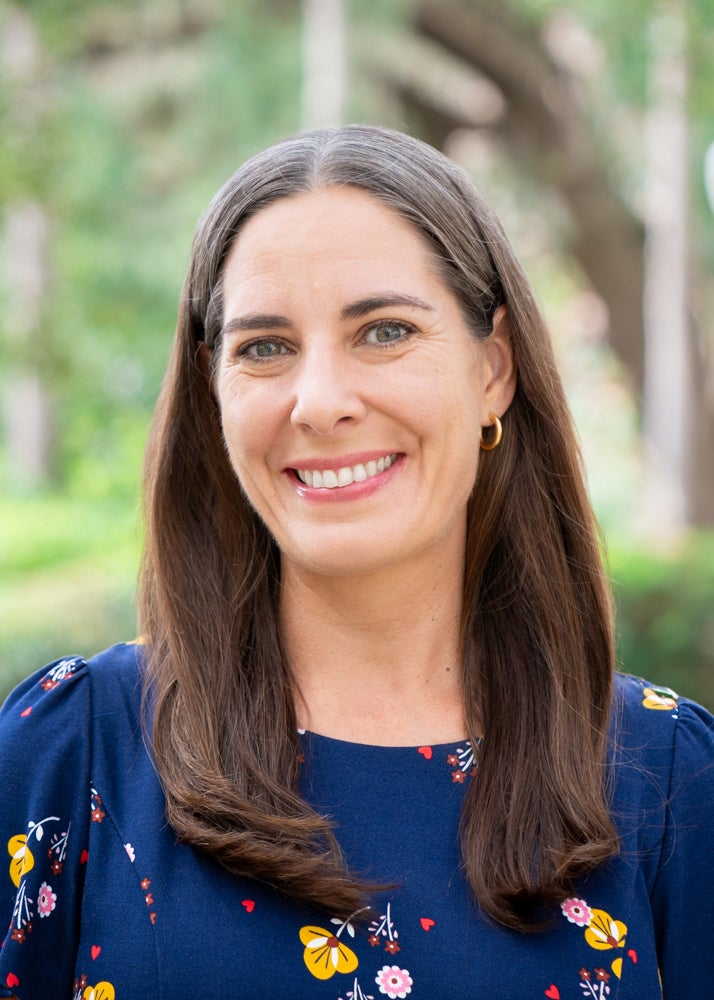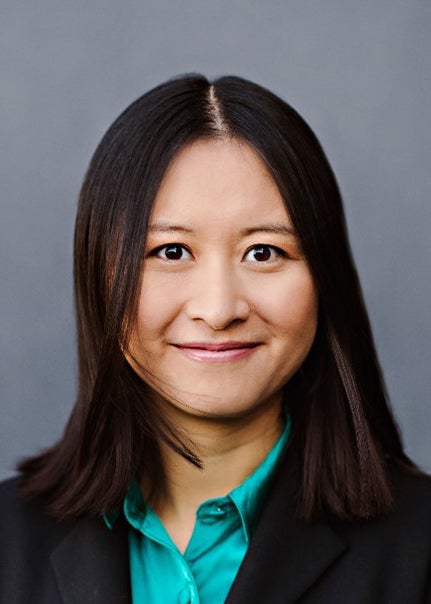Four researchers at the University of Waterloo have been awarded $3.95 million in funding to support their research as part of the illustrious Canada Research Chairs (CRC) program.
This year, the CRC program is investing more than $198 million to support new and renewed Chairholders. Through the program, up to $311 million each year is invested to attract and retain some of the world's most accomplished and promising minds.
The announcement was made by the Honourable Mélanie Joly, Minister of Industry and Minister responsible for Canada Economic Development for Quebec Regions.
Waterloo's newest CRCs are among Canada's leading experts in their fields. They join a network of Chairholders working across the University's six faculties to advance research that transforms societies, economies, technologies, sustainability and health for humanity to thrive in a complex future.
"Congratulations to the University of Waterloo's new and renewed Canada Research Chairs," says Dr. Charmaine Dean, vice-president, Research and International. "This year's Waterloo awardees examine a fascinating array of topics from social robots and intergroup attitudes to geochemistry and nanoscale devices and circuits. Thank you to our government partners at the Tri-Agencies for this significant investment in Canada's research excellence."
 Dr. Kerstin Dautenhahn | Faculty of Engineering
Dr. Kerstin Dautenhahn | Faculty of Engineering
Tier level: Tier 1 NSERC CRC in Socially Intelligent Robotics
$1,400,000
Socially interactive robots have the potential to support people in meaningful ways, but advancing their real-world impact requires a human-centred approach to ensure they function effectively outside the lab.
Dr. Kerstin Dautenhahn's research aims to develop the next generation of socially intelligent robots that act human-like through voice, gestures and expressions while learning from experience and personalizing their behaviour. Her team focuses on three areas: assisting older adults, supporting therapy for children with disabilities and improving access to mental health services for adolescents and university students through robot coaches.
These robots are designed as tools - not replacements - for therapists or caregivers. By co-designing with users, clinicians and carers, the team ensures inclusion, cultural adaptability and alignment with real-world needs across diverse communities.
 Dr. Brian Kendall | Faculty of Science
Dr. Brian Kendall | Faculty of Science
Tier level: Tier 2 NSERC CRC in Redox-Sensitive Meal Isotope Geochemistry
$500,000
Metals like uranium, iron and chromium change their solubility and behaviours based on the oxidation state of their surroundings.
Dr. Brian Kendall's CRC project will study redox-sensitive metal isotope systems to advance our understanding of natural resource formation and the co-evolution of Earth's environment and life.
"Analyzing metal isotopic compositions in ancient ocean sediments and in mineral deposits helps scientists understand the triggers of past mass extinctions and determine what geologic factors lead to the formation of world-class ore deposits," Kendall says.
He and his research team are focusing on novel thallium and rhenium isotope systems to gain new insights into the genesis of critical mineral and gold deposits. Their findings will also help predict future ocean deoxygenation due to climate change.
 Dr. Kate Ratliff| Faculty of Arts
Dr. Kate Ratliff| Faculty of Arts
Tier level: Tier 1 SSHRC CRC in Intergroup Attitudes
$1,400,000 + $50,000 JELF
Negative attitudes between social groups can exacerbate disparities in health, education and criminal justice.
Dr. Kate Ratliff's CRC in Intergroup Attitudes will contribute to an understanding of how intergroup attitudes form and are maintained over time at individual and regional levels.
"This research will cultivate critical knowledge about the causal influence of national and regional policies on intergroup attitudes at a time when intergroup contact in Canada is at an all-time high," she says.
Ratliff will undertake multiple interrelated research projects. First, her team will create a flexible, responsive, public database for the study of Canadians' public policy and intergroup attitudes. Her experiments will then establish the conditions under which policy changes impact intergroup attitudes and will test those conditions with respect to real-world policy change in Ontario and nationally.
 Dr. Lan Wei | Faculty of Engineering
Dr. Lan Wei | Faculty of Engineering
Tier level: Tier 2 NSERC CRC in Nanoscale Devices and Circuits
$500,000 (CRC) + $100,000 Federal Research Fund
Wide bandgap (WBG) semiconductors - particularly gallium-nitride (GaN) - are emerging as a leading material for next-generation wireless and power electronics. WBG-based technologies promise faster, more efficient and more compact hardware.
Dr. Lan Wei will push WBG technology to new frontiers by building on her research expertise and experience translating semiconductor devices and integrated circuit innovation to industry.
Leveraging strong collaborations and the University of Waterloo's state-of-the-art facilities, her research aims to meet the demanding needs of commercial and industrial applications, such as more reliable wireless communication in harsh environments for aerospace, medical imaging, oil drilling, and efficient power management for fast chargers, electric vehicles and data centres.
Beyond WBG, Dr. Wei is also pioneering advancements in cryogenic semiconductor and quantum technology to enable the next generation of large-scale quantum computers.
These projects are made possible by the Canada Research Chair program.
The University of Waterloo also received $9,824,119 as part of the Government of Canada's Research Support Fund. Another $2,728,903 (plus an additional $28,933 for 2024-25) was awarded to the University through the Incremental Project Grants program, and $742,768 through the Research Security Grant program.






